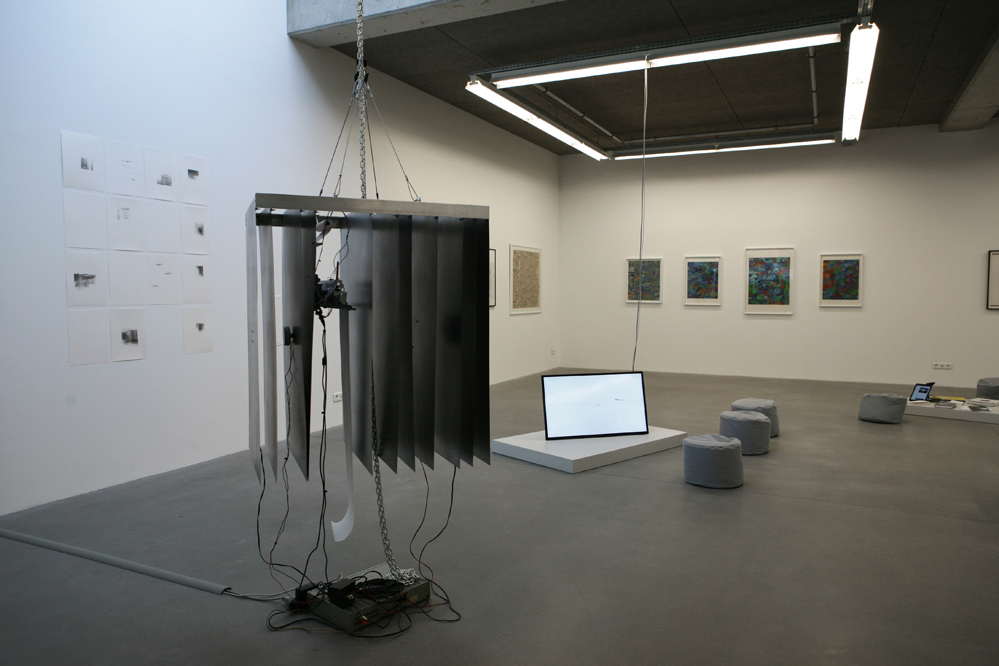[French title : Données à voir]
Group show, La Terrasse, Centre d’art de Nanterre, October 7th – December 23th, 2016. Curated by Sandrine Moreau and Thierry Fournier
See the press release (French) and the introductory text (English)
With Martin John Callanan, Marie-Pierre Duquoc, Hasan Elahi, Öyvind Fahlstrom, Ashley Hunt, Mark Lombardi, Philippe Mairesse, Claire Malrieux, Julien Prévieux, Ward Shelley, Ali Tnani et Lukas Truniger. Publications and editions by James Bridle, Bureau d’études, Eli Commins, Albertine Meunier, On Kawara, Jacopo da Pontormo et Erica Scourti. Performance by Magali Desbazeille. La Terrasse window: The Promise, work in situ by Thierry Fournier.
[metaslider id=15869]
The exhibition Data on view brings together a selection of international artists and works that offer interpretations of public or personal data through drawing or code: graphs, drawings, network installations, sculptures, publications… These works are addressing various stakes, sensitive and poetic but also critical or political. They question in particular what we expect from data, and how these expectations are likely to define our vision of the world.
Between drawing and programming, a single process emerges: one which consists of an individual reappropriation by the artists of a world of data that runs through the whole of contemporary society, in order to offer a critical interpretation. Here, drawing and code share a common approach to the trace: diagrams of systems of political or social relationships in Öyvind Fahlström’s, Ward Shelley’s, Mark Lombardi’s or Julien Prévieux’s drawings, individuals’ digital footprint in Hasan Elahi’s work, Claire Malrieux’s or Ali Tnani’s generative representations of the present and of utopias, Martin John Callanan’s works which questions systems of representations, etc. The machine joins the hand in mapping the world that surrounds us.
Around these questions and through the relationship to drawing, Data on view offers a historic journey that takes us from the seventies to international contemporary artists, several of whose pieces are exposed here for the first time in France, such as Martin John Callanan’s or Hasan Elahi’s. The exhibit also presents a set of publications and artists’ books devoted to these concepts.
It is complemented by documentation of films and web sites that address the stakes of citizen appropriation of data: in parallel to the artists’ actions, citizens act upon the representation of data and on its appropriation. As for films such as those produced by Laura Poitras on Edward Snowden, or by Mareike Weneger on Mark Lombardi, they illustrate de breadth and the violence of the political stakes this particular field raises.
